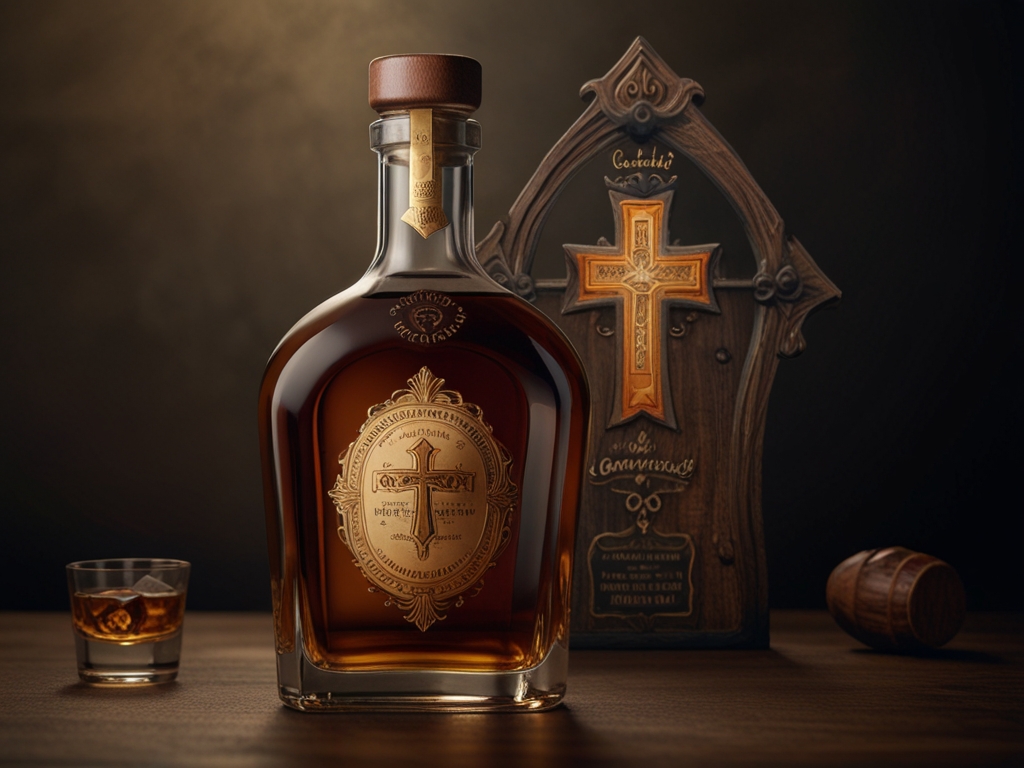
The Whiskey Conundrum: Is There a Catholic or Protestant Whiskey?
If you've ever found yourself in the company of seasoned Irish whiskey drinkers, you might have heard them passionately declare their allegiance to either "Catholic" or "Protestant" whiskey. This declaration, often accompanied by a pointed finger or a dismissive wave at a bottle of Jameson or Bushmills, raises an intriguing question: Can whiskeys be assigned religious beliefs?
The Historical Backdrop
This issue dates back to the Troubles, a period of political and sectarian conflict in Northern Ireland that stretched from the late 1960s until the Good Friday Agreement in 1998. This context is crucial to understanding the religious affiliations of Irish whiskeys. Both Jameson and Bushmills are undeniably Irish whiskeys produced on the island of Ireland. However, Bushmills whiskeys are made at the Old Bushmills Distillery in County Antrim, within Protestant Northern Ireland, while Jameson whiskeys are distilled at the New Midleton Distillery in County Cork, deep in Ireland's Catholic south. But does geography dictate the religious affiliation of a whiskey?
The Truth Behind the Labels
Contrary to popular belief, the religious affiliations of these whiskeys couldn't be further from the truth. As Jack McGarry, co-founder of the Dead Rabbit bar, points out, Bushmills' master distiller, Colum Egan, is Irish Catholic, while John Jameson, the founder of the brand named after him, was Scottish Protestant. However, it's important to note that the religious backgrounds of the distillers do not influence the production or taste of the whiskeys.
Moreover, distilleries often buy casks from each other to add different nuances of flavor to their products. So, even in your grandparents' days, any bottle of Bushmills or Jameson likely contained whiskey from the other side of the border. In the whiskey industry, the term 'juice' refers to the liquid that is aged in the casks and eventually bottled as whiskey.
The Bottom Line
The lesson here is empowering: If this issue bothers you, find solace in the bottom of a glass of whichever whiskey you personally find more appealing. After all, the enjoyment of whiskey transcends geographical boundaries and religious affiliations.
And if you want to stir up a spirited debate, point out that Arthur Guinness, the founder of the world-renowned Guinness beer, was both a Protestant and a Unionist. This fact is significant because it shows that the religious and political affiliations of the founders do not necessarily reflect on the products they create.
In conclusion, the religious affiliations attributed to whiskeys are more folklore than fact. So, the next time you raise a glass, remember that the true spirit of whiskey lies in its taste, not in its perceived religious leanings.
Note: This article is based on our expert's experiences and research. We always advocate for responsible drinking, respecting the rich heritage and craftsmanship of these whiskeys.
Disclaimer: The information provided on MaltMarvels.com is intended for educational and entertainment purposes only. We strive to provide accurate and up-to-date content, but we cannot guarantee the accuracy, completeness, or reliability of the information presented. Our reviews and opinions are based on personal experiences and preferences, and individual tastes may vary. We encourage responsible drinking and remind our readers to always consume alcoholic beverages in moderation. MaltMarvels.com is not liable for any consequences resulting from the use of information obtained from this website. Please drink responsibly and legally according to your country's laws.
Leave a comment